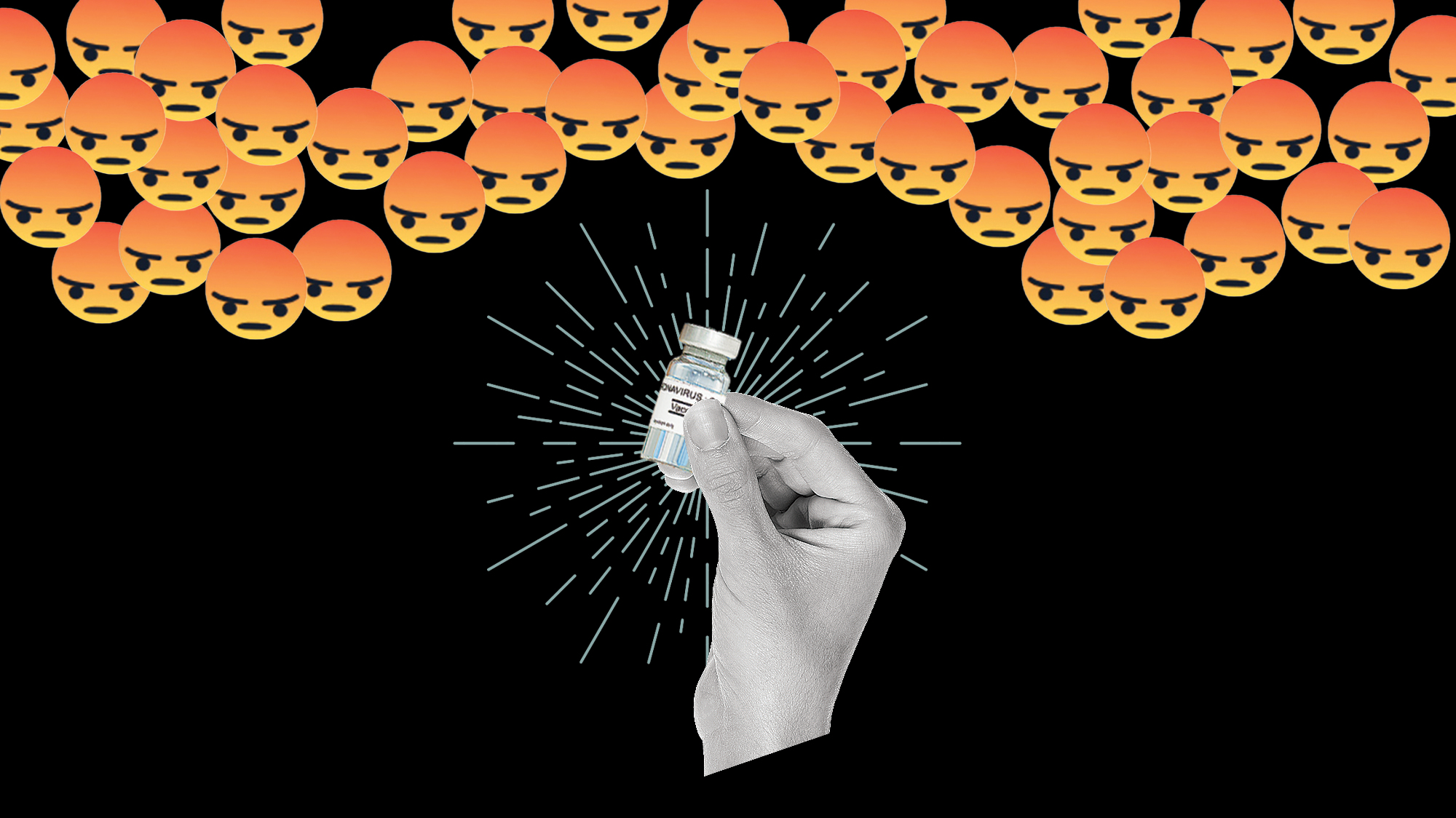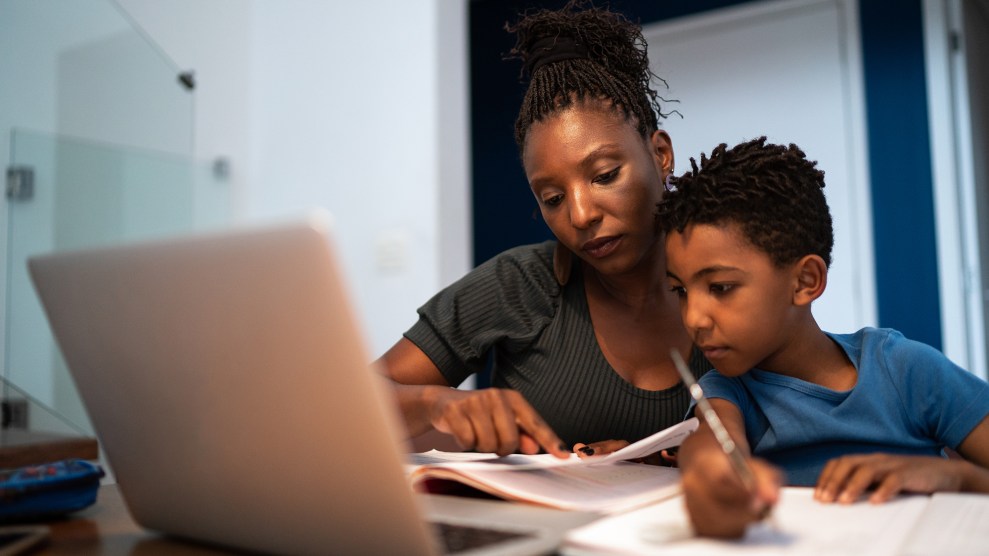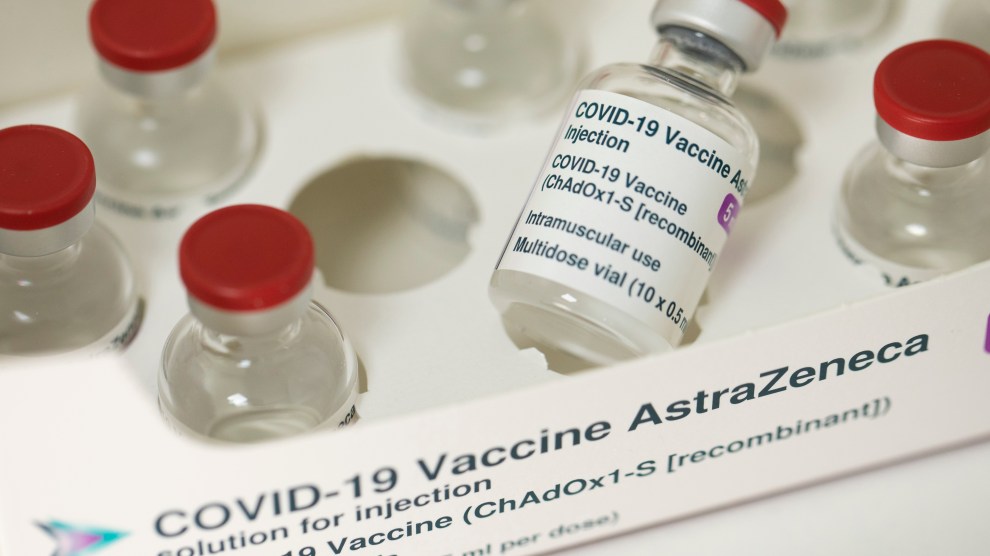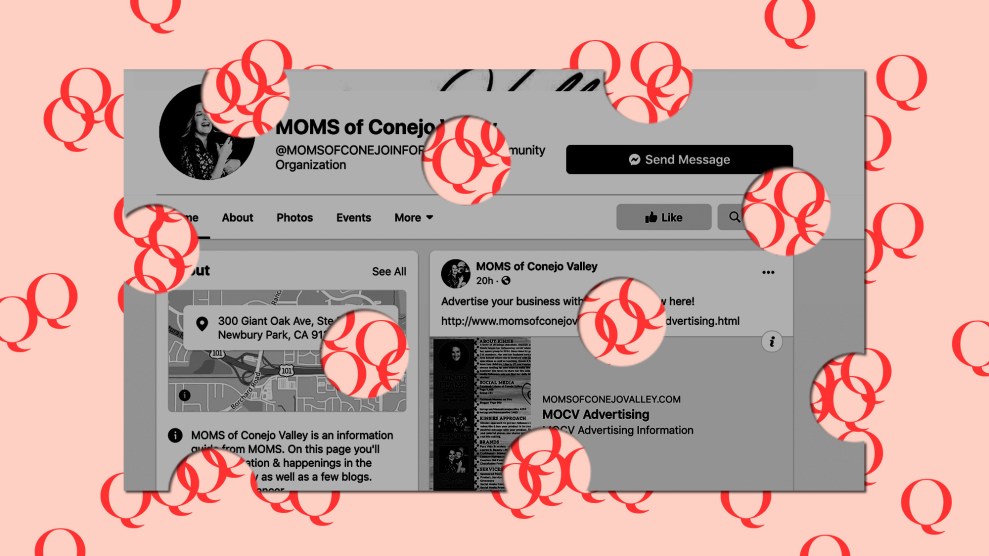The rollout of children’s COVID vaccines has begun: On Monday, the FDA approved the Pfizer shot for 12- to 15-year-olds. That’s just the beginning—last week, the New York Times reported that children as young as 2 could be eligible as soon as September. The mass vaccination of children could herald the end of the most catastrophic social costs from the pandemic in the United States: Schools and day care facilities will be able to resume normal operations, which means parents will no longer have to perform the nearly impossible act of juggling simultaneous work demands and child care. Cue the collective sigh of parental relief: It’s the moment we’ve all been waiting for!
Well, maybe not all of us. According to an April poll by the Kaiser Family Foundation, nearly a quarter of parents surveyed said they definitely wouldn’t get their child vaccinated, and an additional 15 percent said they would only have their child vaccinated if their school required it. About a third said they didn’t plan to get their children vaccinated right away; instead they planned to wait and monitor for side effects.
In some ways, this was to be expected. The vaccines are new, and they were approved under an emergency-use authorization during a historic pandemic. Nathan Chomilo, a pediatrician in Minnesota and a spokesperson for the American Academy of Pediatrics, told me that parents of his patients have expressed very understandable concerns—that the trials seemed rushed, for instance (they weren’t), and questions about whether kids really need the vaccine, given their relative unlikelihood of severe COVID. (Most experts agree they do.) Chomilo notes the importance of language in describing what’s going on. “I’ve really tried to use the term ‘vaccine deliberation’ when it comes to the COVID-19 vaccine versus lumping it in with this broader, longer-term issue of ‘vaccine hesitancy,’” he said.
But where Chomilo sees a need for nuanced conversations, anti-vaccine advocates likely see a grand opportunity to broaden their base with a group of parents—people who may never have thought twice about keeping up with the standard schedule of vaccines for infants and children but now are questioning the safety of a new shot. Experts have observed an uptick in anti-vaccine organizing over the last year. Rupali Limaye, a Johns Hopkins public health researcher who studies vaccine hesitancy, told me via email that she is “worried about the growing following behind some prominent antivaxx groups.” She sees these forces not only as barriers to mass vaccination against COVID but also as direct threats to herself and her colleagues. She added, “There seems to be more coordination among those that have these attitudes, and this has led to coordinated attacks/take downs of public health officials.”
Even before the COVID vaccines were approved for teens, anti-vaccine groups were already out in force in online parenting communities. A few viral posts round up entries from the Vaccine Adverse Event Reporting System, the federal database where people can report any symptoms they’ve experienced after a vaccine. These posts are compelling—like this one from an anti-vaccine advocate purporting to find a pattern of heart problems in 16-year-olds who have received a COVID vaccine.
What the people behind the posts don’t disclose is that VAERS reports aren’t verified independently, nor are they official medical reports: Anyone can submit an entry. But this is a perfect template for how misinformation works: Its spreaders omit key context or details and hope readers will have an emotional reaction without thinking too hard about the veracity of what they’re reading.
That’s just one tactic, of course. Throughout the pandemic, I’ve reported on the proliferation of anti-vaccine sentiment in online parenting communities. I’ve examined how anti-vaxxers took over homeschool moms’ groups, and how coronavirus deniers and QAnon conspiracy theorists won over moms’ communities on social media. As the year wore on, I’ve noticed a few patterns of misinformation that are repeated in these groups, and I expect to see them crop up again during the rollout of vaccines for children. In the coming weeks, you’re likely to see posts designed to appeal to the Whole Foods shopper types (“Do you really know what’s in those vaccines?”), the anti-corporate types (“Big pharma’s making bank on these vaccines!”), and the Libertarians (“Don’t let the government tell you what to put in your kid’s body!”).
You’ll see more subtle posts, too, which will appeal to one’s sense of identity as a caring and vigilant parent. Are you the kind of parent who will unquestioningly do what you’re told? Or are you the more savvy kind who will rely on your own intuition about what’s best for your family? Aren’t you the kind of parent who will do your own research?
This last category of these posts may be the most important because psychologically it can be the most effective. The reasons that moms’ groups are particular targets of anti-vaxxers are complex, but there’s one dynamic that I think deserves more attention. I’m going to go on a little tangent here, but bear with me—I promise this is relevant to vaccines. A few weeks back, Katie J.M. Baker wrote in Lux about the proliferation of anti-trans sentiment in UK moms’ groups. Baker observed members seeing trans people who bore children as a threat to their burgeoning identity as moms, as if moms’ group members required exclusive ownership of the physicality of motherhood. Baker quotes one group member: “Carrying my child and birthing my child was not a fucking social construct.” She chronicles how this kind of outrage gets whipped up in the groups with trans people becoming the scapegoats.
Of course, Baker is writing about something entirely different, but vaccine misinformation can follow a similar pattern. In these groups, the physical acts of motherhood—like unmedicated childbirth and breastfeeding—are powerful markers of identity. These acts are often talked about as “superpowers.” Many mothers, and perhaps especially the ones who spend a lot of time in Facebook groups, can feel vulnerable, lonely, and overwhelmed. They may have scant family leave and little help at home. Sometimes, their real concerns about their own health and their babies’ wellbeing have been dismissed by doctors.
For years, purveyors of misinformation about alternative health have exploited these forums to promote theories and practices that aren’t backed by science and can be dangerous. Some of the greatest hits: Ultrasounds can harm your developing fetus; Tamiflu will kill your toddler; a mere sip of formula will destroy your infant’s microbiome; and you should eat your placenta to ward off postpartum depression. The unifying theme for all of them is that the savvy parent “does her own research” to guard against profiteering hospitals and pharma-aligned doctors. It’s not a big intellectual leap to get from that mindset to vaccine skepticism.
Much of this misinformation can be found interspersed with inspirational feel-good messages in the public Facebook group Natural Parenting Mommas. With 143,000 followers, the group lists among its subjects of interest attachment parenting, baby-wearing, holistic health, and natural birth methods. Typical posts range from TikTok videos defending the right to breastfeed in public to memes criticizing standard obstetric practices such as cervical exams. Many of the posts have a feminist vibe; there are countless memes about the thankless work of mothering. You can imagine readers murmuring tearfully, “I feel so seen!” “What men don’t understand is…nobody cooks for her,” reads one. “Nobody cleans for her. Nobody makes her meals. Nobody does her laundry. Nobody makes sure she’s okay. Nobody caters to her, period. A woman is always instantly looked at as someone who needs to take care of everyone.” Some of the memes that the group shares are full of cathartic anger about sexual violence. One recent post:
I wish men understood that when women are talking about feminism and rape culture and shit, it’s not just a political conversation. It’s not about being a “social justice warrior” or whatever. It’s about our actual lives being shaped by misogyny since childhood, and the daily reality of living in fear of violence. This isn’t a fucking game or philosophical debate. This is our fucking lives.
An overarching theme is the paramount importance of parenting. “Your job will forget you ever worked there,” reads one post. “Your child will never forget you weren’t there.”
Over the last year, though, ominous messages about public health during the pandemic have been woven into posts about the sanctity of motherhood. Recent posts warn members about the psychological damage that mask mandates will cause in children. “Protecting kids from dangerous things like forced masking, traumatizing isolation, toxic injections, harmful foods & oppressive government isn’t a #conspiracy theory, that’s just called good parenting,” one March post read. Another recent post is a message in a frame of brightly colored feathers reminiscent of a Native American dreamcatcher. It reads: “Your daily reminder: Don’t take the COVID vaccine.” (When asked about the group’s stance on COVID vaccines and mask mandates, a spokesperson for Natural Parenting Mommas wrote back, “Considering there are multiple admins for the page, all with varying degrees of opinions on the COVID vaccines and mask mandates, we will be unable to confirm anything for you at this moment in time.”)
Women come to moms’ groups for the reassuring memes about how hard and lonely parenting can be, and they stay for the righteous indignation about the government presuming that it knows what’s best for their families. “New parents are left alone, without meaningful conversations from trusted, credible sources,” Seema Yasmin, a Stanford physician who studies medical misinformation, told me this week. Many people are drawn into social media groups in the vulnerable postpartum period, when they’re just forming their identity as parents. That early influence is powerful, and it can persist for years. “That’s how you end up with people really deeply entrenched in a parenting groups on Facebook, with conspiracy theories about everything from ‘if you eat your placenta, you won’t get postpartum depression’ to ‘don’t vaccinate your kid.’”
The pressure on parents is even greater with the added burden of the coronavirus, said Jennifer Reich, a sociologist at the University of Colorado, Denver, who studies the anti-vaccine movement. “During the pandemic, as people have felt more isolated, online communities have become more important than ever,” she told me. “Parents in general and mothers specifically have relied on online communities for a long time for advice and support.”
Katy Strang, who moderates a Facebook moms’ groups in Camarillo, California, told me she has observed this dynamic in her own group. She and her fellow moderators try to remove posts that pass on unverified information, but as she told me last fall, during the pandemic, it’s become a nearly impossible task. When I caught up with her this week, she said the incredible strain of pandemic parenting has made the situation worse. “To our detriment,” she wrote me in an email, “the isolated, exhausted mamas who look to these groups for support at all hours of the days and nights may be susceptible to internalizing misinformation that is being shared by armchair experts.”
The slow cascade in online groups from alternative health to COVID misinformation is not easy to fix, especially since its very proliferation serves to normalize the content. It won’t go away if social media platforms simply label posts as misinformation. The moderators I’ve interviewed have told me that even their efforts to delete misinformation haven’t worked; the deleted posts just pop up in the comments section on seemingly unrelated posts. The fundamental reason these tactics won’t work is that they’re not addressing the right problem, which is not a lack of knowledge, but a lack of support.
There are some things that might actually counteract misinformation, and they have nothing to do with offering facts as an argument. Instead, programs such as paid family leave, affordable and accessible child care, and universal basic income for women who choose to remain home could be antidotes to all the alienation at the core of these groups. Yasmin notes that simply improving postpartum care and training doctors to take parents’ concerns seriously could also diminish the roles that online forums play in parents’ lives. “Historically, we’ve not done a great job of supporting new parents, especially when it comes to health areas that all are already stigmatized,” she said. “I worry that we’ll just lose many more people. And we will foster more distrust against the medical field.”
In the context of the pandemic, that distrust is intensified, and it’s evident in the spaces I report on. As the world gears up for children’s COVID vaccines, this will persist. You’ll hear people blaming online moms’ groups for being anti-science, for being hotbeds of misinformation. When you do, remember this: It’s not that the mothers are dumb or overly credulous—it’s that they’re desperate.

















